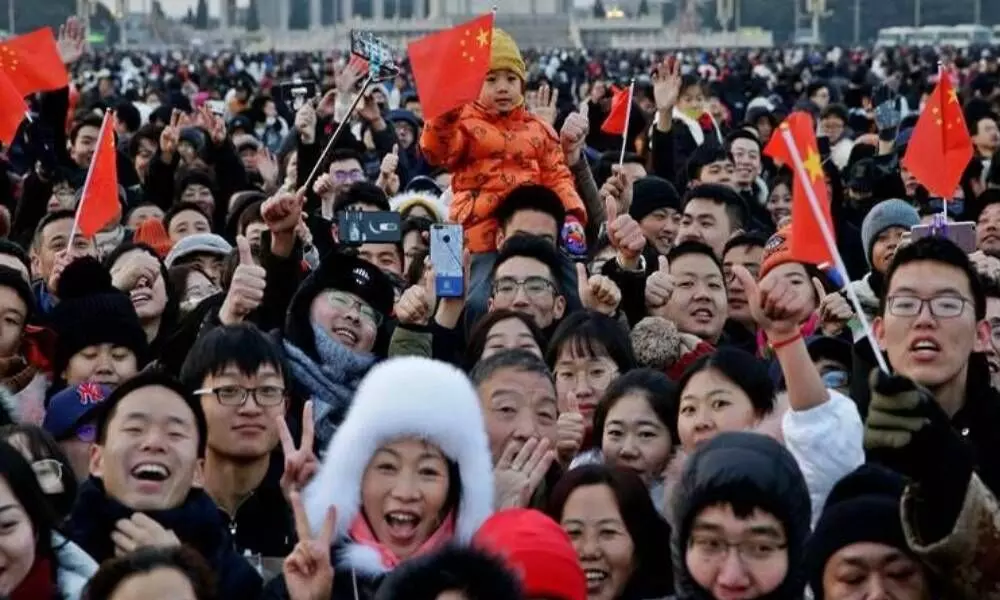More children merrier in China now
Communist country relaxes its strict two-child policy, allowing couples to have up to 3 children
image for illustrative purpose

Beijing China's ruling Communist Party on Monday announced a relaxation of its strict two-child policy to allow all couples to have up to three children, in a major policy change after recent data showed a steep decline in birth rates in the world's most populous country.
China permitted all couples to have two children in 2016, scrapping the draconian decades-old one-child policy which policymakers blame for the demographic crisis in the country. Chinese officials claim the one-child policy implemented for over three decades has prevented over 400 million births. The decision to permit the third child came after this month's once-in-a-decade census showed that China's population grew at the slowest pace to 1.412 billion amid official projections that the decline may begin as early as next year.
The new census figures revealed that the demographic crisis China faced was expected to deepen as the population above 60 years grew to 264 million, up by 18.7 per cent last year. As the calls for the government to do away with the family planning restrictions grew louder due to the concerns that the declining population in the country could result in serious labour shortages negatively impacting the world's second-largest economy, the Communist Party of China (CPC) headed by President Xi Jinping decided to permit a third child while declining to completely scrap the family planning policy. "China will support couples that wish to have a third child," state-run Xinhua news agency reported, quoting a decision made at the Political Bureau of CPC, presided over by President Xi.
"Implementing the policy and its relevant supporting measures will help improve China's population structure, actively respond to the aging population, and preserve the country's human resource advantages," the meeting said.
The meeting heard reports on major policy measures to actively address the ageing of population during the 14th Five-Year Plan period (2021-2025). The meeting reviewed a decision on improving birth policies to promote long-term balanced population growth, the Xinhua report said.
"Data shows the aging of the Chinese population has further deepened, and we will continue to face the pressure to achieve long-term balanced population development," Ning Jizhe, head of the National Bureau of Statistics (NBS), said while releasing the census figures on May 11.
Also, the two-child policy failed to enthuse couples to have a second child as fewer opted for the second child citing heavy expenditure in raising the children. The poor response made Liang Jianzhang, professor at Peking University's School of Economics, to suggest to the government to offer parents one million yuan ($156,000) for each newborn child to shore up the country's declining birth rate. The declining trend prompted Chinese demographers to predict that India's population may overtake China's earlier than UN projection of 2027 to take the top spot as the most populous country in the world. Projected to surpass China as the world's most populous country around 2027, India is expected to add nearly 273 million people between now and 2050 and will remain the most populated country through the end of the current century, a UN report said in 2019.

